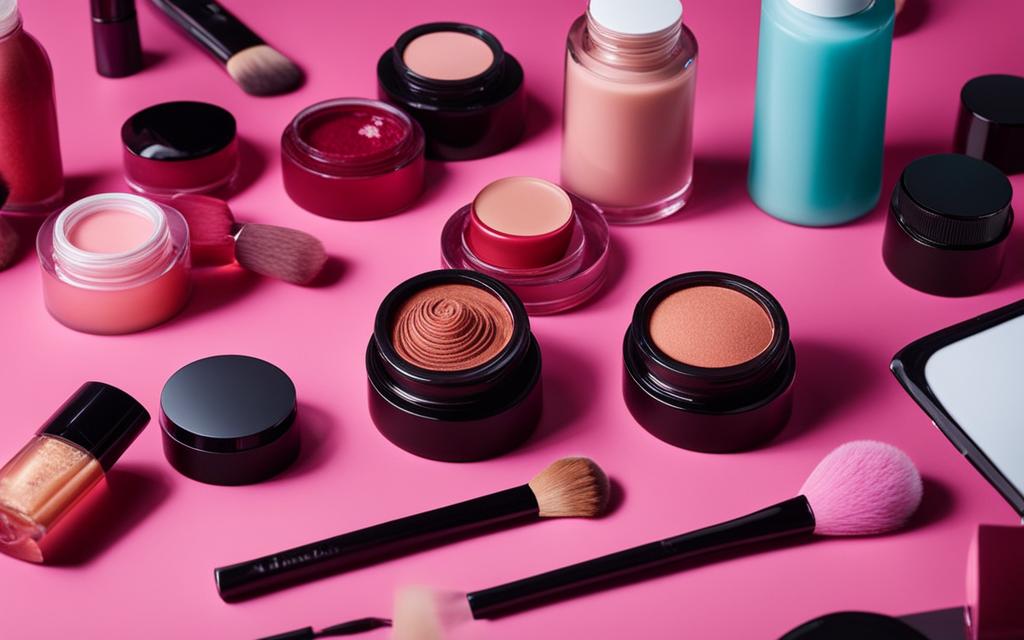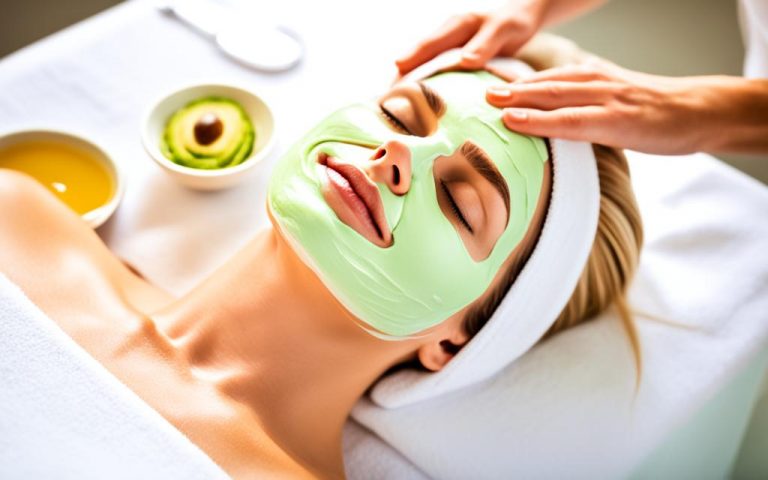How to Start Selling Makeup from Home – A Step Guide
How to Start Selling Makeup from Home: Starting a makeup business from home can be a rewarding venture. With the right strategies and steps in place, you can successfully launch and grow your own makeup brand. In this step-by-step guide, we will explore the essential steps to start selling makeup from home and build a successful home-based makeup business. The guide will cover everything from finding a niche in the market to marketing your makeup line and getting started with sales.
Key Takeaways
- Starting a makeup business from home allows you to tap into a lucrative market and be your own boss.
- Identify a niche or unique selling point for your makeup brand to stand out in a crowded market.
- Consider whether to make your own cosmetics, work with manufacturers, use private label companies, or resell existing brands.
- Building a strong and recognizable brand is crucial for the success of your makeup business.
- Establishing an online store and utilizing digital marketing strategies can help you reach a wider audience and drive sales.
- Ensure high-quality ingredients, attractive packaging, and proper labelling for your makeup products.
- Stay informed about industry trends and continuously refine your products and branding to stay competitive.
Meet the Beauty Business Experts
To gain valuable insights and advice, you have the opportunity to learn from the expertise of four successful beauty founders who have built their makeup brands from scratch. These beauty business experts have experienced the challenges and successes of starting a cosmetics business firsthand, and their stories will inspire and guide you in your journey as an aspiring makeup entrepreneur.
Expert 1: Emily Johnson – Founder of Glam Cosmetics
Emily Johnson, the founder of Glam Cosmetics, is a trailblazer in the beauty industry. With her extensive knowledge in makeup artistry and passion for empowering others, she has successfully built Glam Cosmetics into a globally recognized brand. Emily’s expertise in product development, marketing strategies, and creating captivating beauty campaigns has allowed her to establish Glam Cosmetics as one of the most successful beauty brands.
Expert 2: Samira Patel – Creator of Pure Radiance Skincare
Samira Patel, the creator of Pure Radiance Skincare, has revolutionized the cosmetic industry with her all-natural and cruelty-free skincare products. As a strong advocate for sustainability and transparency, Samira’s expertise lies in product formulation, sourcing organic ingredients, and communicating brand values effectively. Her dedication to creating eco-friendly beauty solutions has propelled Pure Radiance Skincare to become a leading choice among conscious consumers.
Expert 3: Michael Thompson – Founder of Artistry Makeup
Michael Thompson, the founder of Artistry Makeup, is a true visionary in the world of makeup. With his keen eye for trends and exceptional creativity, Michael has successfully created a brand that embodies self-expression and individuality. His expertise in product innovation, collaborating with artists, and creating inclusive beauty campaigns has established Artistry Makeup as a go-to brand for beauty enthusiasts worldwide.
Expert 4: Isabella Russo – CEO of Bella Cosmetics
Isabella Russo, the CEO of Bella Cosmetics, is a dynamic leader who has taken her brand to great heights. With her business acumen and passion for empowering women, Isabella has transformed Bella Cosmetics into a thriving beauty empire. Her expertise in scaling a business, building strong partnerships, and creating a diverse product portfolio has positioned Bella Cosmetics as a sought-after brand in the beauty industry.
By learning from these beauty business experts, you will gain valuable insights and strategies to navigate the competitive landscape of the makeup industry. Their experiences and expertise will inspire you to create a successful makeup brand of your own, and their guidance will prove invaluable as you embark on your journey in the beauty business.
Quick Start Guide: How to Start a Makeup Line in 5 Steps
If you’ve always dreamt of starting a makeup line and launching your own cosmetics business, now is the perfect time to turn your passion into reality. In this quick start guide, we will outline the five essential steps to help you navigate the process of starting a makeup line successfully.
Finding a Trend or Niche in the Market
The first step in starting a makeup line is identifying a trend or niche in the market that aligns with your unique vision and target audience. Conduct market research to determine the current demands and preferences of makeup consumers. Look for gaps in the market or opportunities to create a product that stands out from the competition. By finding a trend or niche, you can position your makeup brand for success and attract a dedicated customer base.
Selecting a Product and Business Model
Once you’ve identified the trend or niche, it’s time to select the specific makeup products you want to offer. Consider your target audience’s needs and preferences, as well as your own expertise and interests. Decide whether you want to focus on a specific category, such as lipsticks, eyeshadows, or skincare, or offer a full range of makeup products. Additionally, determine your business model, whether it’s creating your own products from scratch, collaborating with manufacturers, white labeling, or reselling existing brands.
Building Your Makeup Brand
Your makeup brand is more than just the products you sell – it’s an expression of your unique identity and values. Build a strong and memorable brand by developing a brand name, logo, packaging design, and brand messaging that resonates with your target audience. Consider factors such as brand story, aesthetic, and the emotions you want to evoke. Cultivate a brand identity that sets you apart from competitors and establishes a strong connection with your customers.
Creating an Online Store
In today’s digital age, an online store is essential for reaching a wider audience and maximizing sales. Create a user-friendly and visually appealing online store where customers can explore and purchase your makeup products. Choose a suitable e-commerce platform that meets your specific needs, such as easy-to-use website builders or specialized platforms for cosmetics businesses. Optimize your product pages, implement secure payment options, and ensure a seamless checkout process to provide a positive online shopping experience for your customers.
Marketing Your Makeup Line
Once your makeup line and online store are ready, it’s time to spread the word and attract customers. Implement a comprehensive marketing strategy that includes social media promotion, influencer collaborations, content marketing, email campaigns, and search engine optimization. Identify your target market and tailor your marketing messages to their unique preferences and needs. Utilize digital marketing channels to increase brand visibility and generate buzz around your makeup brand.
By following these five essential steps, you can lay a solid foundation for starting your own successful makeup line. Remember, starting a cosmetics business requires dedication, creativity, and continuous learning. Stay informed about industry trends, listen to your customers’ feedback, and keep refining your products and branding to ensure long-term success.
What to Sell: Positioning Your Makeup Line in a Crowded Market
With a saturated cosmetics market, it’s important to position your makeup line in a way that stands out from the competition. To achieve success in the cosmetics market, you need to consider several key factors when deciding what to sell.
Identifying a Unique Product or Filling a Gap in the Market
One of the most effective strategies for differentiating your makeup line is by offering a unique product. Whether it’s an innovative formula, a distinctive packaging design, or a specialized tool, providing something that sets your brand apart can attract customers and create a loyal following. Additionally, identifying and filling a gap in the market can give you a competitive edge by offering something that others may not have.
Targeting Underrepresented Customers
Another approach to standing out in the crowded cosmetics market is by targeting underrepresented customers. Focus on niche markets that are often overlooked by larger brands, such as specific age groups, skin tones, or skin types. By catering to these customers’ unique needs and preferences, you can establish a loyal customer base and build a strong brand reputation.
Capitalizing on Emerging Trends
Keeping up with makeup trends is essential for staying relevant in the industry. Monitor fashion runways, beauty influencers, and social media platforms to identify emerging trends in makeup. By capitalizing on these trends and incorporating them into your product offerings, you can attract trend-conscious consumers and position your makeup line as a leader in the industry.
Market Research and Staying Informed
Conducting thorough market research is crucial for making well-informed decisions about what to sell in the cosmetics market. Stay up-to-date with industry reports, consumer insights, and competitor analysis to understand current market dynamics and consumer preferences. This knowledge will help you make strategic choices that align with the evolving needs and desires of your target audience.
“To succeed in the cosmetics market, your makeup line needs to offer something unique, target underrepresented customers, and stay ahead of emerging trends.”
– Beauty Business Expert
By strategically positioning your makeup line based on product differentiation, target audience, and market trends, you can successfully navigate the crowded cosmetics market and carve out a profitable niche for your brand.
| Factors to Consider | Importance |
|---|---|
| Unique product or gap in the market | High |
| Targeting underrepresented customers | Medium |
| Capitalizing on emerging trends | High |
| Market research and staying informed | High |
Make, Manufacture, White Label, or Resell?
When starting a makeup business, you have different options for producing or procuring products. Understanding these options is crucial as it will help you determine the best approach for your makeup brand. In this section, we will explore the pros and cons of four key options: making your own cosmetics, working with manufacturers, using private label companies, or reselling existing brands.
Making Your Own Cosmetics
If you have a passion for creating unique formulations and want complete control over your makeup production, making your own cosmetics might be the right choice for you. By making your own products, you can create bespoke formulas, experiment with different ingredients, and ensure that your brand offers something truly original.
However, it’s important to consider the challenges associated with making your own cosmetics. From sourcing raw materials to adhering to strict regulations, the manufacturing process can be complex and time-consuming. Additionally, setting up a production facility and obtaining the necessary certifications can require a significant upfront investment.
Working with Manufacturers
Collaborating with manufacturers is a popular option for many makeup entrepreneurs. By outsourcing the production of your cosmetics to a specialized manufacturer, you can benefit from their expertise, resources, and established production processes.
This approach allows you to focus on other aspects of your business, such as branding and marketing. It can also provide economies of scale, reducing your production costs. However, working with manufacturers means relinquishing some control over the manufacturing process and relying on external partners to deliver consistent quality.
Using Private Label Companies
Private label companies offer pre-existing cosmetic formulations that you can customize and rebrand as your own. This option allows you to quickly enter the market with high-quality products without the need for extensive research and development.
Private label products are often more cost-effective than creating cosmetics from scratch. By leveraging the expertise of private label companies, you can save time and resources that would otherwise be spent on product development. However, you may face limitations in terms of product customization and differentiation.
Reselling Existing Brands
Reselling well-known makeup brands can be an attractive option for those who want to enter the market quickly without investing in production or manufacturing. By curating a selection of popular and in-demand products, you can cater to a specific target market and leverage the reputation and marketing efforts of established brands.
However, reselling existing brands may come with limitations, such as lower profit margins, limited control over product availability, and potential competition from other resellers. It’s crucial to research and select brands that align with your target audience and offer unique value propositions.
| Option | Pros | Cons |
|---|---|---|
| Making Your Own Cosmetics | – Complete control over product formulation – Ability to create unique and original products |
– Complex and time-consuming manufacturing process – Costly setup and certification requirements |
| Working with Manufacturers | – Access to manufacturing expertise and resources – Potential cost savings |
– Relinquishing control over manufacturing process – Dependency on external partners |
| Using Private Label Companies | – Quick market entry – Cost-effective solution |
– Limited customization options – Potential lack of product differentiation |
| Reselling Existing Brands | – Quick market entry – Leveraging established brand reputation |
– Lower profit margins – Limited control over product availability |
Ultimately, the choice between making your own cosmetics, working with manufacturers, using private label companies, or reselling existing brands depends on your goals, resources, and the unique value proposition you want to offer. Carefully consider the pros and cons of each option, and choose the approach that aligns best with your vision for your makeup brand.

Building Your Makeup Brand
Building a strong and recognizable brand is crucial for the success of your makeup business. When it comes to makeup branding, there are a few key elements that you need to consider. Let’s explore these elements in more detail:
Choosing a Brand Identity
Your brand identity is the outward expression of your makeup business’s personality, values, and mission. This includes your brand name, logo, tagline, and overall visual representation. Take the time to research and brainstorm ideas that align with your target audience and differentiate you from competitors. Remember, your brand identity should resonate with your ideal customers and leave a lasting impression.
Developing Visual Assets
Visual assets play a crucial role in makeup branding. This includes your logos, color palette, typography, and packaging design. These elements should collectively create a cohesive and visually appealing look that represents your brand’s values and resonates with your target audience. Invest in professional design services to ensure that your visual assets are of high quality and visually engaging.
Defining Your Brand Voice and Values
Your brand voice is the tone and style of communication that you use to engage with your audience. It should be consistent across all your marketing channels and reflect your brand’s personality. Additionally, defining your brand values is essential for connecting with your target audience on a deeper level. Identify the values that your brand stands for, such as inclusivity, sustainability, or empowerment, and incorporate them into your messaging and content.
Remember, consistency is key in building your makeup brand. Every interaction with your audience should reinforce your brand’s identity and values. Whether it’s through your social media posts, packaging design, or customer experience, aim for a consistent and memorable customer journey.
In summary, building a successful makeup brand requires careful consideration of your brand identity, visual assets, brand voice, and values. By investing time and effort into these elements, you can create a brand that stands out in the competitive beauty industry and resonates with your target audience.
Ingredients, Packaging, Labelling, and Inventory
The quality of your makeup products, their packaging, and proper labelling are essential aspects of running a successful makeup business. In this section, we will explore the importance of sourcing high-quality ingredients, designing attractive and functional packaging, complying with regulations for product labelling, and implementing effective inventory management strategies. These factors contribute to the overall appeal and professionalism of your makeup brand.
Sourcing High-Quality Ingredients
Using top-notch makeup ingredients is crucial for creating products that meet customer expectations. Ensure that the ingredients you source are safe, ethically produced, and comply with industry standards. Collaborating with reputable suppliers and conducting thorough research will help you maintain the quality of your makeup line.
Designing Attractive and Functional Packaging
An eye-catching packaging design can significantly impact a customer’s perception of your makeup products. Create packaging that reflects your brand identity and appeals to your target market. Consider functionality as well, ensuring that your packaging is practical, easy to use, and protects the products effectively.
Complying with Product Labelling Regulations
Proper labelling is essential for conveying important information about your makeup products, such as ingredients, usage instructions, and expiration dates. Familiarize yourself with the regulations and guidelines set by regulatory bodies, such as the Food and Drug Administration (FDA) or the European Union’s Cosmetics Regulation, to ensure compliance and build trust with customers.
Implementing Effective Inventory Management Strategies
Efficient inventory management is crucial for maintaining product availability and avoiding overstock or shortages. Invest in a reliable inventory management system that allows you to track stock levels, manage reorder points, and forecast demand. By optimizing your inventory management, you can ensure timely order fulfillment and minimize costs.
“Sourcing high-quality ingredients, designing attractive packaging, complying with labelling regulations, and implementing effective inventory management are key elements in building a successful makeup brand.”
– Beauty Business Expert
By focusing on the quality of your makeup products, their packaging, proper labelling, and efficient inventory management, you can enhance the appeal of your brand and provide a positive customer experience. Now let’s explore how to set up your online store and reach your target audience effectively.
| Key Points | Benefits |
|---|---|
| Sourcing High-Quality Ingredients | – Ensures safety and satisfaction for customers – Differentiates your brand from competitors |
| Designing Attractive and Functional Packaging | – Enhances brand identity and customer appeal – Protects products effectively |
| Complying with Product Labelling Regulations | – Builds trust and transparency with customers – Demonstrates professionalism and legality |
| Implementing Effective Inventory Management Strategies | – Optimizes stock levels and reduces costs – Ensures timely order fulfillment |
Setting Up Your Online Store
In today’s digital age, having an online store is essential for selling makeup from home. With an online presence, you can expand your reach and connect with a wider audience of potential customers. This section will guide you through the process of setting up your online store, ensuring that it is user-friendly, visually appealing, and capable of driving sales for your makeup brand.
Choosing an E-commerce Platform
To get started with your online store, the first step is to choose an e-commerce platform that suits your needs. There are many options available, each with its own features and advantages. Consider factors such as ease of use, customization options, and pricing when making your decision.
Popular e-commerce platforms include:
- Shopify: A user-friendly platform with a wide range of customizable themes and plugins.
- WooCommerce: A WordPress plugin that allows you to turn your existing website into an online store.
- BigCommerce: An all-in-one platform that offers robust marketing features and scalability.
Designing a User-Friendly Website
The design of your online store plays a crucial role in attracting and retaining customers. Aim for a clean and intuitive layout that showcases your makeup products effectively. Your website should be easy to navigate, with clear categories, product descriptions, and high-quality product images. Consider hiring a professional web designer or using pre-designed templates to ensure a polished and professional look.
Optimizing Product Pages
Each product page on your online store should be optimized to provide a seamless shopping experience for your customers. Use clear and concise product titles, detailed descriptions, and high-resolution images. Include relevant keywords to improve search engine visibility. Additionally, consider incorporating customer reviews and ratings to build trust and credibility.
Implementing Secure Payment Options
Offering secure payment options is essential for building trust with your customers. Integrate reputable payment gateways such as PayPal, Stripe, or Square into your online store. Display trust badges and ensure that your website uses secure encryption protocols (HTTPS) to protect customer data during transactions.
Ensuring a Seamless Checkout Process
A streamlined and hassle-free checkout process is paramount to reducing cart abandonment rates and maximizing conversions. Minimize the number of steps required to complete a purchase, offer guest checkout options, and provide clear and transparent shipping and return policies. Test your checkout process regularly to identify and address any potential issues.
By following these steps, you can set up an online store that showcases your makeup brand effectively, provides a seamless shopping experience for your customers, and drives sales consistently. Remember to regularly monitor and optimize your online store based on customer feedback and market trends to ensure the continued success of your home-based makeup business.
Marketing Your Makeup Line
Effective marketing is crucial for promoting your makeup line and attracting customers. To help you maximize your reach and grow your brand, this section will explore various marketing strategies, including social media promotion, influencer collaborations, content marketing, email marketing, and search engine optimization.
Identifying Your Target Market
Before diving into marketing tactics, it’s important to identify your target market. Determine the demographics, interests, and preferences of your ideal customers. This knowledge will guide your marketing efforts and ensure that your messages resonate with your audience.
Creating Compelling Marketing Messages
Once you have a clear understanding of your target market, craft compelling marketing messages that highlight the unique features and benefits of your makeup line. Emphasize what sets your products apart from the competition and how they can enhance the beauty routines of your customers.
“Our makeup line is designed to enhance your natural beauty and empower you to express yourself through makeup. With high-quality ingredients and an extensive range of shades, our products are tailored to meet the diverse needs of beauty enthusiasts.”
Utilizing Social Media Promotion
Social media platforms provide a powerful tool for promoting your makeup line. Create engaging and visually appealing content that showcases your products, shares beauty tips, and encourages customer interaction. Utilize platforms like Instagram, Facebook, and YouTube to connect with your target audience and build a loyal following.
Consider partnering with beauty influencers who align with your brand’s values and target market. Collaborating with influencers can help you reach a wider audience and generate buzz around your makeup line.
Implementing Content Marketing
Content marketing involves creating valuable and informative content that attracts, engages, and educates your target audience. Write blog posts, create tutorials, and share beauty tips that are relevant to your makeup line. This not only establishes your brand as an authority in the beauty industry but also drives organic traffic to your website.
Leveraging Email Marketing
Email marketing remains a highly effective method for nurturing customer relationships and driving sales. Build an email list by offering incentives such as exclusive discounts or free beauty guides. Send regular newsletters, product updates, and personalized offers to keep your audience engaged and encourage repeat purchases.
Optimizing Search Engine Rankings
Optimizing your website for search engines is crucial for increasing organic visibility. Conduct keyword research to identify relevant search terms and integrate them into your website’s content. Focus on creating valuable and informative content that matches the intent of your target audience’s search queries.
To further enhance your search engine rankings, build backlinks from reputable beauty websites and engage in guest blogging opportunities within the beauty industry.
By implementing these marketing tactics, you can increase brand visibility, attract new customers, and generate sales for your makeup business.
| Marketing Strategy | Benefits |
|---|---|
| Social Media Promotion | – Reach a wide audience – Encourage customer engagement – Partner with influencers |
| Content Marketing | – Establish brand authority – Drive organic traffic – Educate and engage customers |
| Email Marketing | – Build customer relationships – Drive repeat purchases – Personalize offers and updates |
| Search Engine Optimization | – Increase organic visibility – Drive targeted traffic – Improve website rankings |
Conclusion
Congratulations! You have reached the end of this step-by-step guide on how to start selling makeup from home. By following the steps outlined in this guide and implementing effective strategies and techniques, you can successfully launch and grow your home-based beauty business.
Remember, success in the makeup business comes from staying informed about industry trends and continuously refining your products and branding. Stay connected with your target audience, engage with them on social media, and utilize digital marketing channels to promote your makeup line. Building a strong online presence is key in today’s competitive market.
With dedication, creativity, and a passion for beauty, you can turn your dream of owning a successful makeup business into a reality. By offering high-quality products and delivering exceptional customer experiences, you will build a loyal customer base and achieve long-term success in the makeup industry. Best of luck on your journey as a makeup entrepreneur!
FAQ – How to Start Selling Makeup from Home
How can I start selling makeup from home?
To start selling makeup from home, you need to follow these steps: find a niche in the market, select a product and business model, build your makeup brand, create an online store, and market your makeup line. Our step-by-step guide provides more detailed information on each of these steps.
How do I find a trend or niche in the makeup market?
Finding a trend or niche in the makeup market involves identifying unique products or filling gaps in the market, targeting underrepresented customers, and capitalizing on emerging trends. Conducting market research and staying informed about beauty trends will help you identify suitable opportunities.
What are my options for producing or procuring makeup products?
You have several options for producing or procuring makeup products, including making your own cosmetics, working with manufacturers, using private label companies, or reselling existing brands. Each option has its pros and cons, such as cost, customization options, and regulations. Decide based on what aligns best with your goals and resources.
How do I build a strong makeup brand?
Building a strong makeup brand involves choosing a brand identity, developing visual assets like logos and packaging, and defining your brand voice and values. Consistency in branding and creating a memorable customer experience are also important. Our guide provides more in-depth information on each of these aspects.
What factors should I consider when sourcing ingredients and designing packaging?
When sourcing ingredients, it’s important to prioritize high-quality options. For packaging, focus on designing attractive and functional packaging that aligns with your brand identity. Compliance with regulations for product labeling and implementing effective inventory management strategies are also crucial aspects to consider.
How can I set up an online store for selling makeup?
To set up an online store, you need to choose an e-commerce platform, design a user-friendly website, optimize product pages, implement secure payment options, and ensure a seamless checkout process. Our step-by-step guide offers more detailed guidance on each of these areas.
What are some effective marketing strategies for promoting my makeup line?
Effective marketing strategies for promoting your makeup line include social media promotion, influencer collaborations, content marketing, email marketing, and search engine optimization. Identifying your target market, creating compelling marketing messages, and utilizing digital marketing channels will help you reach your audience and generate sales.







